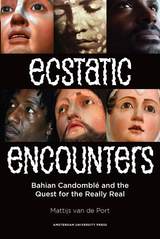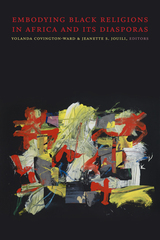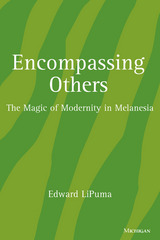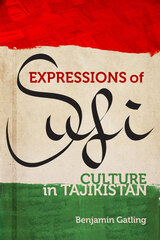6 start with E start with E

For over a hundred years, writers, artists, anthropologists and tourists have travelled to Bahia, Brazil, in search of the spirit possession cult called Candomblé. Thus, successive generations of cultists have seen a long, steady stream of curious outsiders coming to their temples with notebooks and cameras, questions and inquisitive gazes, or ogling eyes and the hope of inclusion. This study asks what seduced these outsiders to seek access to the Afro-Brazilian religious universe and, conversely, how did cultists respond to the overwhelming interest in their creed and to becoming an object of the outsiders’ imaginations.

Contributors. Rachel Cantave, Youssef Carter, N. Fadeke Castor, Yolanda Covington-Ward, Casey Golomski, Elyan Jeanine Hill, Nathanael J. Homewood, Jeanette S. Jouili, Bertin M. Louis Jr., Camee Maddox-Wingfield, Aaron Montoya, Jacob K. Olupona, Elisha P. Renne

Towering over the Kanto Plain, the sacred mountain Ōyama (literally, “Big Mountain”) has loomed large over the religious landscape of early modern Japan.
By the Edo period (1600–1868), the revered peak had undergone a transformation from secluded spiritual retreat to popular pilgrimage destination. Its status as a regional landmark among its devotees was boosted by its proximity to the shogunal capital and the wide appeal of its amalgamation of Buddhism, Shinto, mountain asceticism, and folk beliefs. The influence of the Ōyama cult—the intersecting beliefs, practices, and infrastructure associated with the sacred site—was not lost on the ruling Tokugawa shogunate, which saw in the pilgrimage an opportunity to reinforce the communal ideals and social structures that the authorities espoused.
Barbara Ambros provides a detailed narrative history of the mountain and its place in contemporary society and popular religion by focusing on the development of the Ōyama cult and its religious, political, and socioeconomic contexts. Richly illustrated and carefully researched, this study emphasizes the importance of “site” or “region” in considering the multifaceted nature and complex history of religious practice in Tokugawa Japan.

Focusing on the Maring people of Highland New Guinea and on the Westerners who interacted with them, Edward LiPuma presents issues from the perspectives of both sides. We hear the voice of the Anglican priest from San Francisco as well as the most powerful Maring shamans. Further, the book seeks to develop a theory of generations that helps explain how change accelerates and societies take on new directions across generations.
Theoretical, descriptive, but almost entirely free of jargon, this book is intended for all those who are interested in how the West's encompassment of other peoples influences how these others conceive of their past, imagine their future, and experience the present. It will have wide appeal for anthropologists and others concerned with colonialism, globalization, and the formation of the nation-state.
Edward LiPuma is Professor and Chair, Department of Anthropology, University of Miami.


Gatling demonstrates how Sufis transcend the oppressive religious politics of contemporary Tajikistan by using these forms to inhabit multiple times: the paradoxical present, the Persian sacred past, and the Soviet era. In a world consumed with the supposed political dangers of Islam, Gatling shows the intricate, ground-level ways that Muslim expressive culture intersects with authoritarian politics, not as artful forms of resistance but rather as a means to shape Sufi experiences of the present.
READERS
Browse our collection.
PUBLISHERS
See BiblioVault's publisher services.
STUDENT SERVICES
Files for college accessibility offices.
UChicago Accessibility Resources
home | accessibility | search | about | contact us
BiblioVault ® 2001 - 2024
The University of Chicago Press









